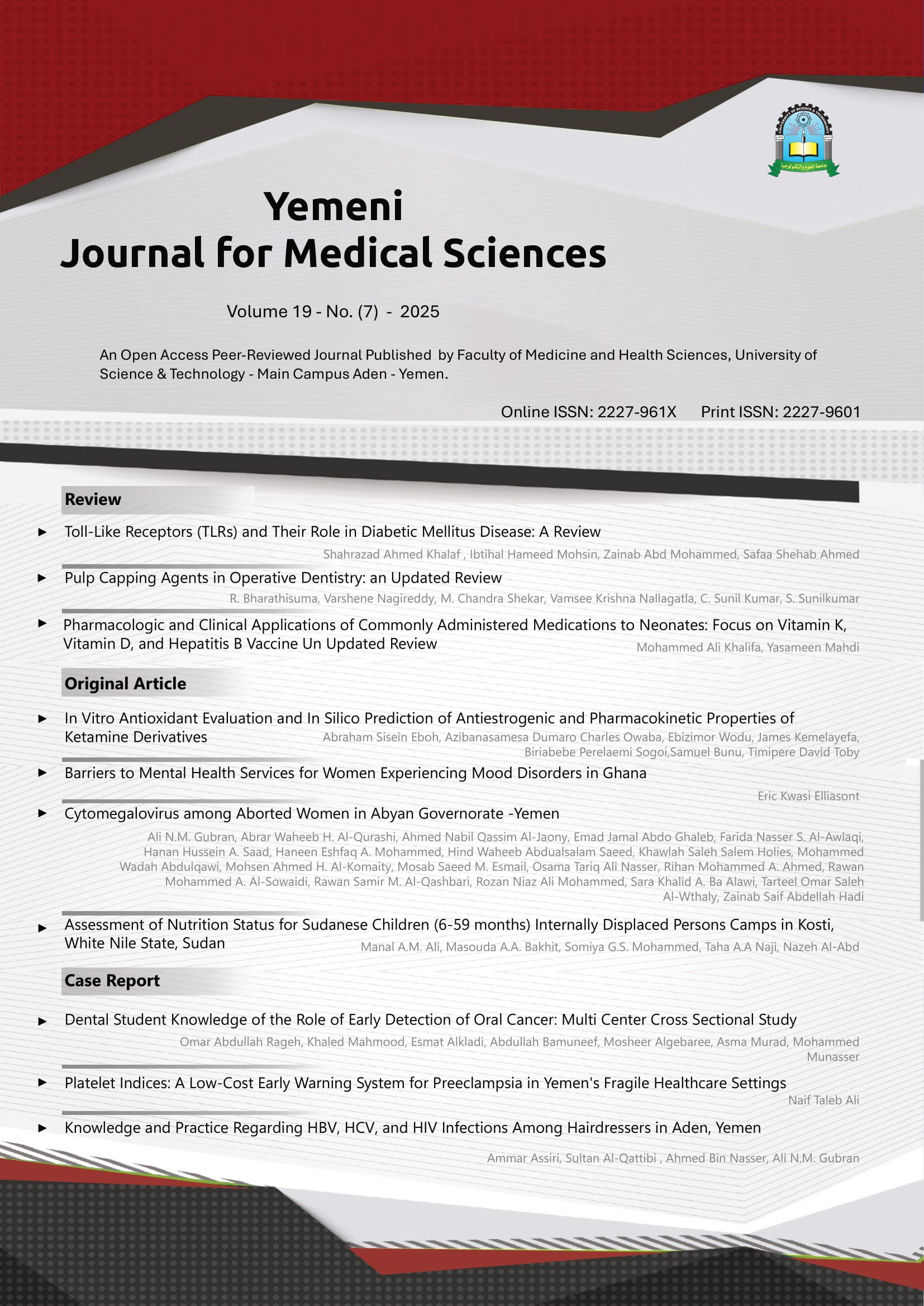Pharmacologic and Clinical Applications of Commonly Administered Medications to Neonates: Focus on Vitamin K, Vitamin D, and Hepatitis B Vaccine Un Updated Review
##plugins.themes.bootstrap3.article.main##
الملخص
Background: The neonatal period is highly susceptible, and early pharmacological treatments can significantly reduce morbidity and mortality. Three commonly used neonatal interventions—vitamin K, vitamin D, and the hepatitis B vaccine—are highlighted by this review as being pharmacological in nature, clinically used, having recommended doses, and being safe.
Methods: A systematic search was conducted in PubMed, ScienceDirect, Google Scholar, and the Cochrane Library using MeSH terms and keywords (e.g., "vitamin K in neonates"). The literature was restricted to that published in the English language during 2015–2025 and involving human neonates.
Results: Vitamin K: The world standard is intramuscular (IM) injection of 0.5–1 mg at birth to prevent vitamin K deficiency bleeding, although alternative oral administration is less uniform. Vitamin D: A daily dose of 400 IU is recommended for all neonates, with up to 1,000 IU in preterm or deficient infants, to prevent rickets and hypocalcemia. Hepatitis B vaccine: Early vaccination within 12–24 hours of birth is essential, especially for babies born to HBsAg-positive mothers, who should also receive hepatitis B immunoglobulin (HBIG). The vaccine is highly effective and safe.
Conclusion: Vitamin K, vitamin D, and the hepatitis B vaccine are essential components of neonatal preventive care. Strengthening health systems, improving parent and healthcare worker education, and increasing access are vital for optimal outcomes.
##plugins.themes.bootstrap3.article.details##

هذا العمل مرخص بموجب Creative Commons Attribution 4.0 International License.
تلتزم المجلة اليمنية للعلوم الطبية رخصة مؤسسة المشاع الإبداعي من فئة (CC BY)، والتي تتيح إعادة استخدام البحث بأي شكل من الأشكال شريطة الاستشهاد بالمؤلف (المؤلفين) والمجلة. وتعتبر المجلة أن المؤلف (المؤلفون) موافق على هذه السياسة بمجرد تقديم البحث للنشر.








